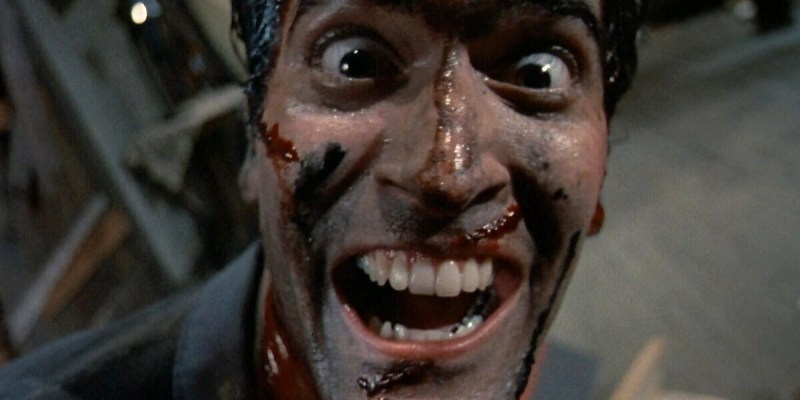The post-pandemic movie landscape has been extremely weird and confusing to navigate, and one of the worst ideas that came with it was dropping several low- and medium-budget horror films with plenty of mainstream appeal on streaming to boost subscriptions numbers that ultimately aren’t able to compete against solid box office earnings. In 2023, it appears we’re well past that point, and thankfully, the latest Evil Dead flick, Evil Dead Rise, managed to dodge the HBO Max bullet.
For some odd reason, knucklehead executives thought the best path forward with a new Evil Dead entry was to make it a streaming exclusive. Some data to back up my insults: 2013’s Evil Dead remake made over $97 million worldwide on a meager $17 million production budget plus your average horror flick marketing costs. Those are some huge benefit margins if you do the math. Your typical Hollywood studio wouldn’t leave easy horror money on the table, yet the pandemic-fueled, fleeting boom of streaming led to someone almost convincing Warner Bros. heads that Evil Dead Rise was better off on the HBO Max homepage versus making effortless bucks at the box office.
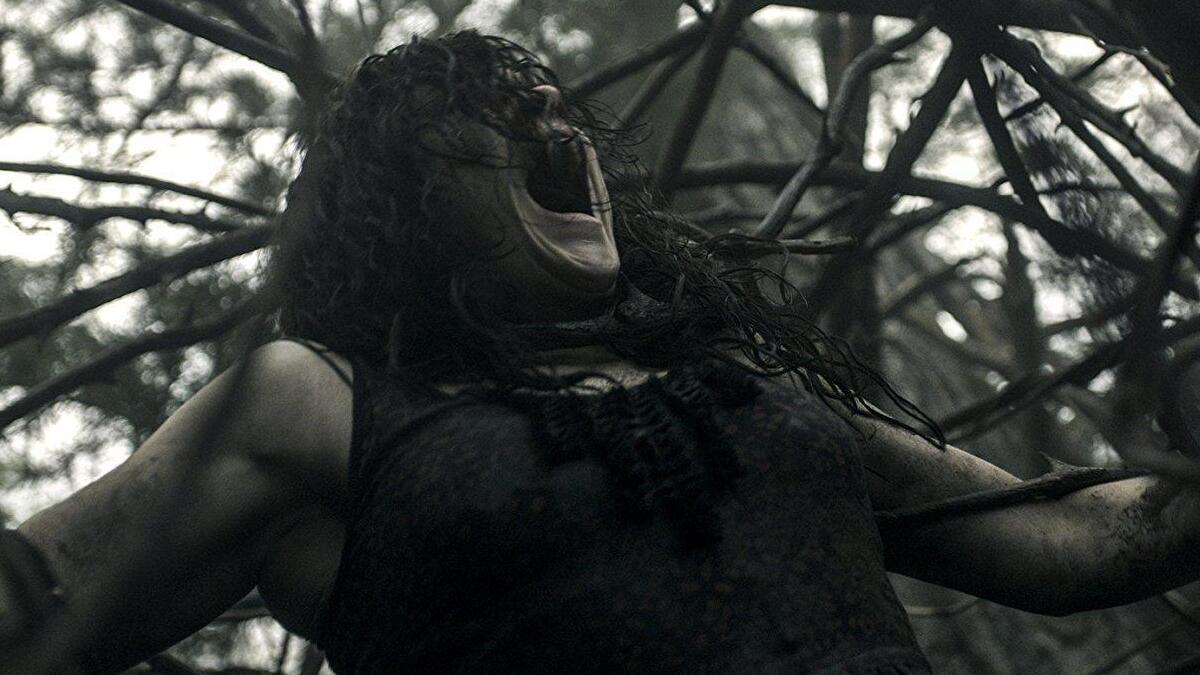
Image via Sony Pictures
The buzz surrounding Lee Cronin’s Evil Dead Rise eventually became so positive that plans changed and the film earned a theatrical release. Fast-forward to early May 2023, and it has already made $90 million on roughly $20 million of reported production budget. So yeah, the fifth Evil Dead movie was always meant to print money, good or not. Thankfully, it’s diabolically good.
Much has been written about the endurance of Scream as a horror franchise and how it’s managed to keep things fresh versus less-than-satisfactory legacy reboots such as the recent Halloween sequels. The horror genre hasn’t traditionally cared much about the median quality of its long-running sagas, and even in the mostly good ones, continuity and some degree of consistency to their mythology haven’t been a main concern. While Evil Dead has endured over the decades as many behind-the-scenes dramas and wild creative swings as the worst of the lot for narrative consistency, it’s somehow retained a remarkable level of commitment to what made the 1981 original work.
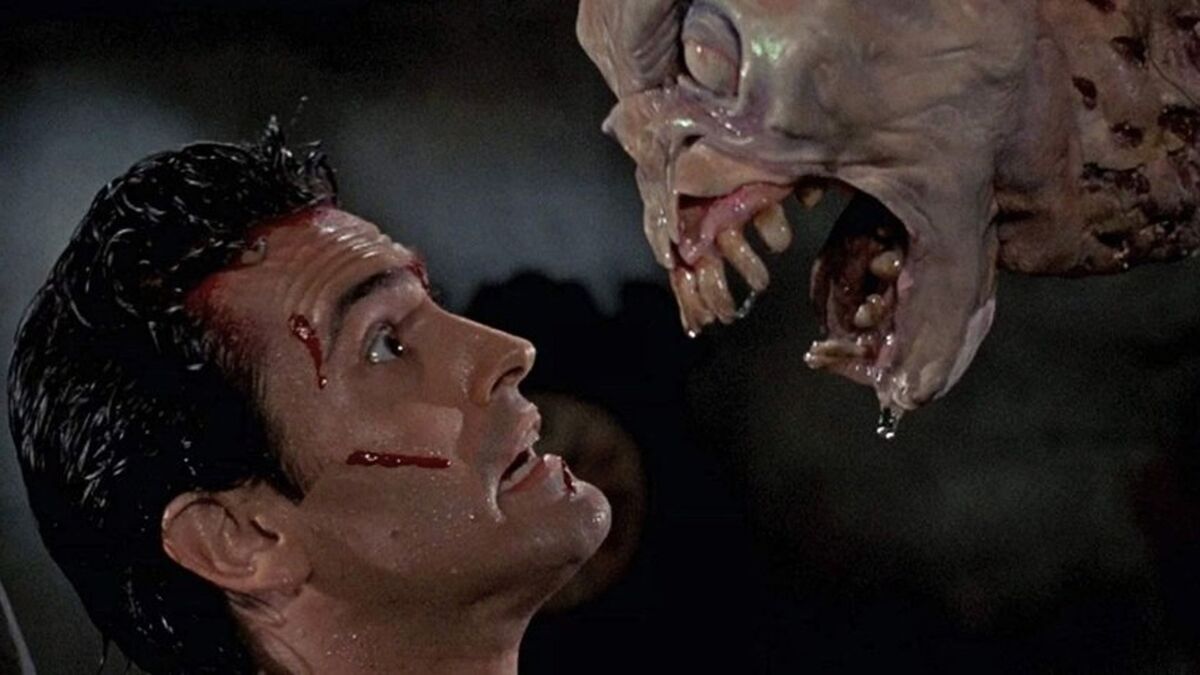
Image via Renaissance Pictures
There’s a pretty good example of how truly fucked up things were for the Evil Dead franchise from the get-go. After The Evil Dead publicist Irvin Shapiro pushed writer-director Sam Raimi to devise a premise for a tentative Evil Dead II, a really stupid hurdle was in their way: Raimi didn’t own the rights to the first movie, so they had to shoot a recap of the original that clearly feels like a light retcon of those events while retaining the main story beats needed to keep Ash’s nightmarish adventure going.
By and large, Evil Dead II is the defining film of the entire franchise, as it solidified its own special brand of horror comedy that wildly swung between being hilarious and genuinely disgusting. It also let audiences and producers alike know that Raimi kid meant business. Unsurprisingly, Army of Darkness came shortly afterwards with a much higher production budget thanks to legendary producer Dino De Laurentiis. And things got somehow weirder for Ash Williams’ saga.
Army of Darkness (the Evil Dead title was largely unused during promotion) doubled down on Bruce Campbell’s leading man charisma and the series’s wackiest side. But of course, the biggest change was a much larger scale (in a Medieval setting!) in exchange for watered-down violence. The original trilogy’s progression is quite similar to Mad Max’s, but the big difference was that Raimi somehow preserved its essence despite the ballooning production budgets and the external pressure to make the third film more palatable for general audiences. Army of Darkness is no Beyond Thunderdome.
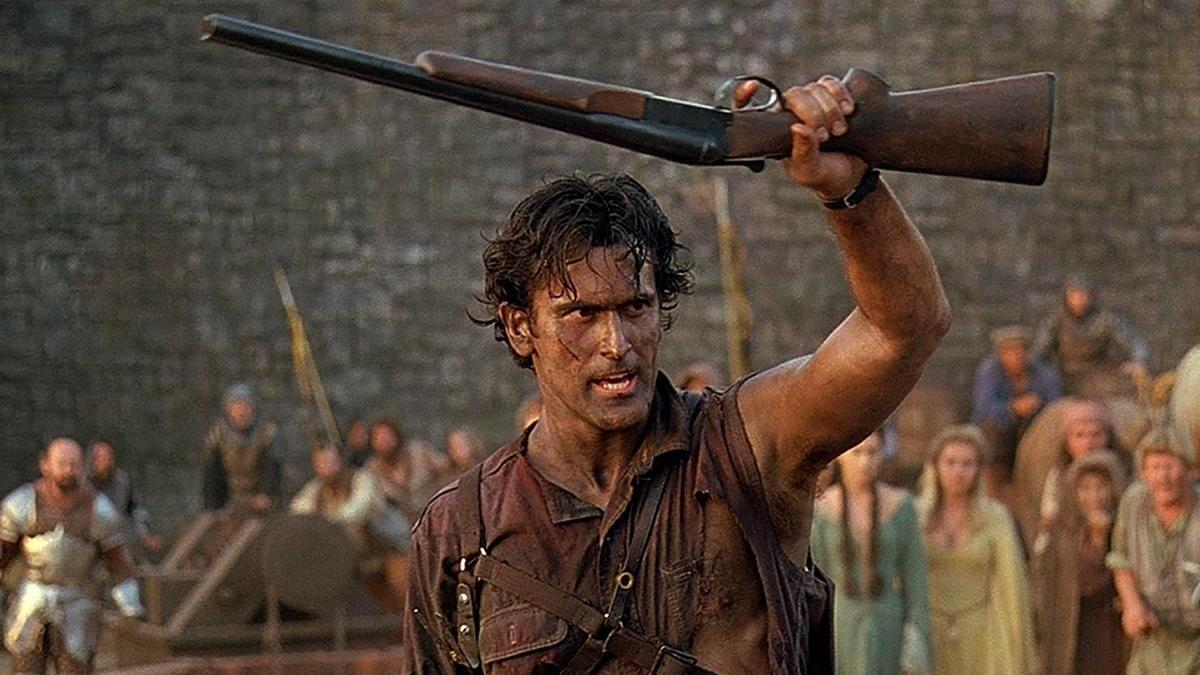
Image via Universal Pictures
In spite of a sizable cult following and decent box office performance from the third movie, Evil Dead was kept in the cellar until the Fede Álvarez-directed remake – which may have happened in the same continuity after all – came out in 2013. By all accounts, Evil Dead 2013 is the gnarliest and most brutal the franchise has ever been. It’s also the entry that completely dropped the self-conscious goofiness, yet the first two movies’ DNA is all over it, from the iconography to the deranged mythology behind the Book of the Dead and the Deadites. There just wasn’t any space for joyful demon-bashing and cheesy one-liners.
We somehow never got an Evil Dead sequel with Jane Levy’s Mia Allen. However, Sam Raimi and Bruce Campbell went more hands-on with the reinvigorated franchise and pursued a sequel to Army of Darkness (as we had already reached the era of legacy sequels) for a while before turning it into Ash vs. Evil Dead, a delightfully deranged TV series that ran for three seasons on Starz and channeled the very best from Raimi’s original trilogy. To this day, I still believe that show was a miracle, as it stayed consistently solid until the end (despite a cancellation) and with more than enough budget to cook up different monstrosities and set pieces almost every week. Evil Dead 4 ended up happening and was dozens of hours long. Groovy.
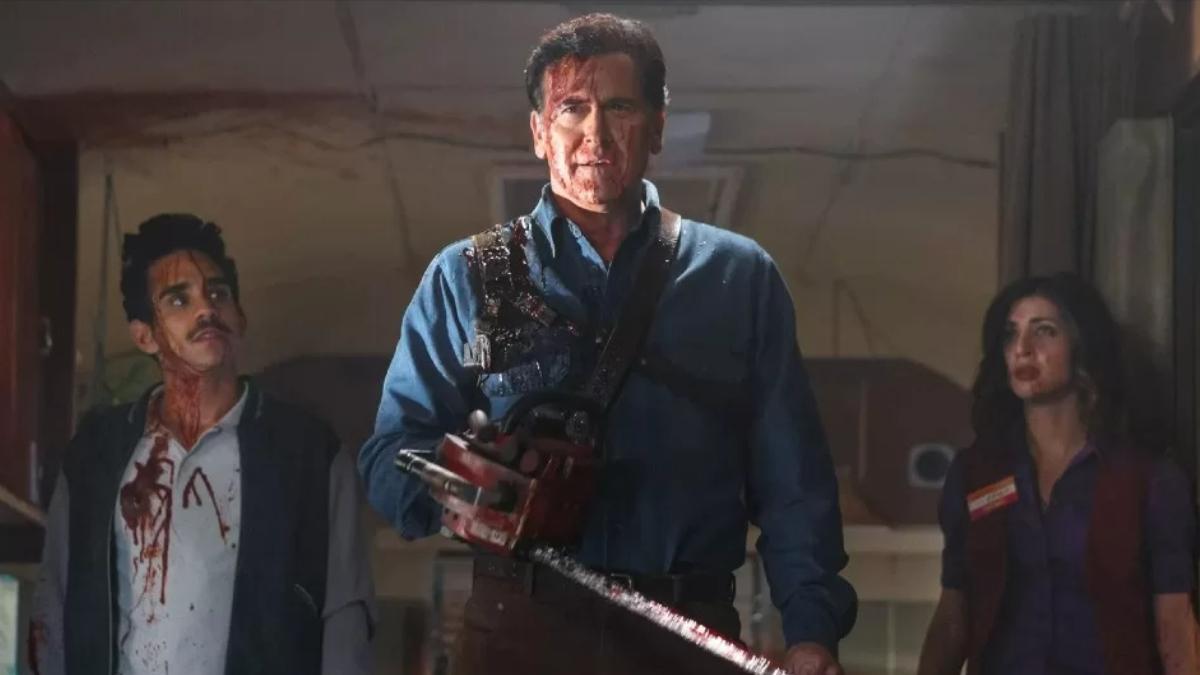
Image via Renaissance Pictures
The positive impact Ash vs. Evil Dead had on the franchise can still be felt today, with 2022’s more-than-adequate video game still adding more content straight from the series and giving each major character introduced in that story a chance to shine again. Word on the street is that Evil Dead Rise has given Sam and Ivan Raimi and Bruce Campbell another creativity boost large enough to start working on “an Evil Dead bible” to expand the universe’s mythology and inform even more director-driven movies.
Once you go through the franchise’s troubled and twisty history, it all seems like the product of chance and improvisation, and that might be the case. Regardless, the Raimis and Campbell’s unyielding attachment to the movies that put them on the map has been more than enough to guide a profoundly unserious horror IP through the ever changing horror landscape. By embracing the chaos inherent to making low-budget horror that’s normally seen by studios as disposable, they managed to create a mythology and a handful of horror icons — the latest of which is Alyssa Sutherland’s Ellie — that are standing the test of time with amazing ease.
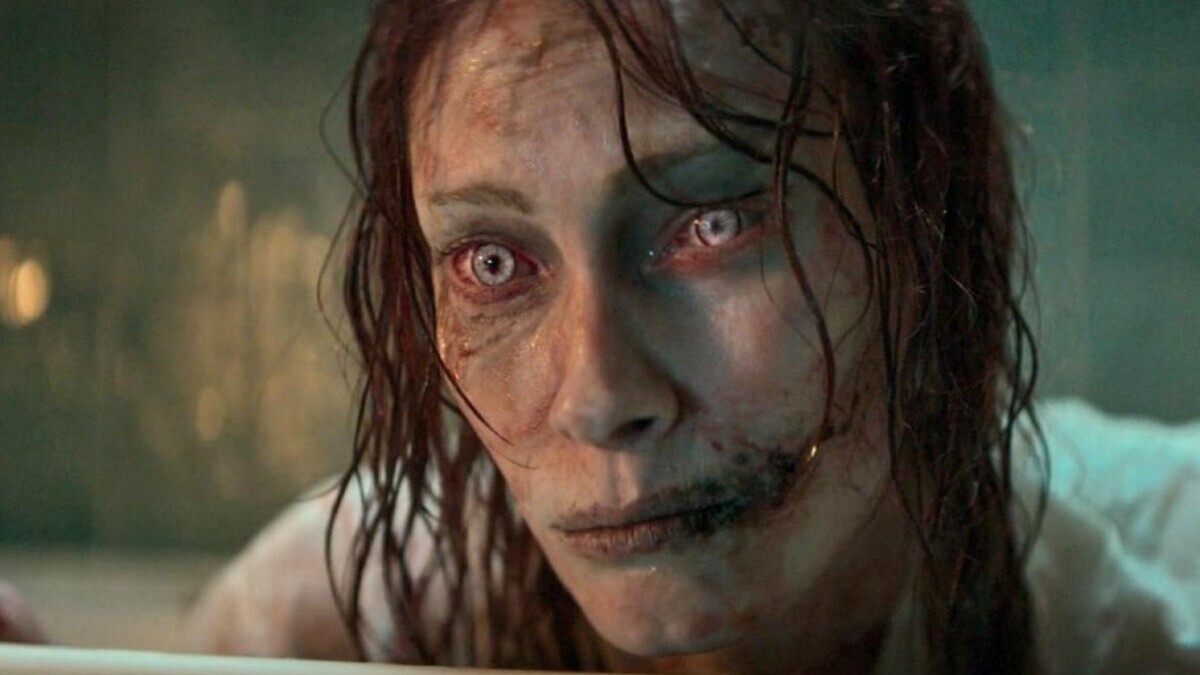
Image via Warner Bros. Pictures
Evil Dead Rise isn’t just nearly as mean and dark as the 2013 “remake,” but also a renewed approach to the series’s sillier side, and I’m curious about whether that balance will be the tonal blueprint moving forward. But if we’re being honest and trying to learn from the past here, the next Necronomicon party will probably be an entirely different gory monster.
